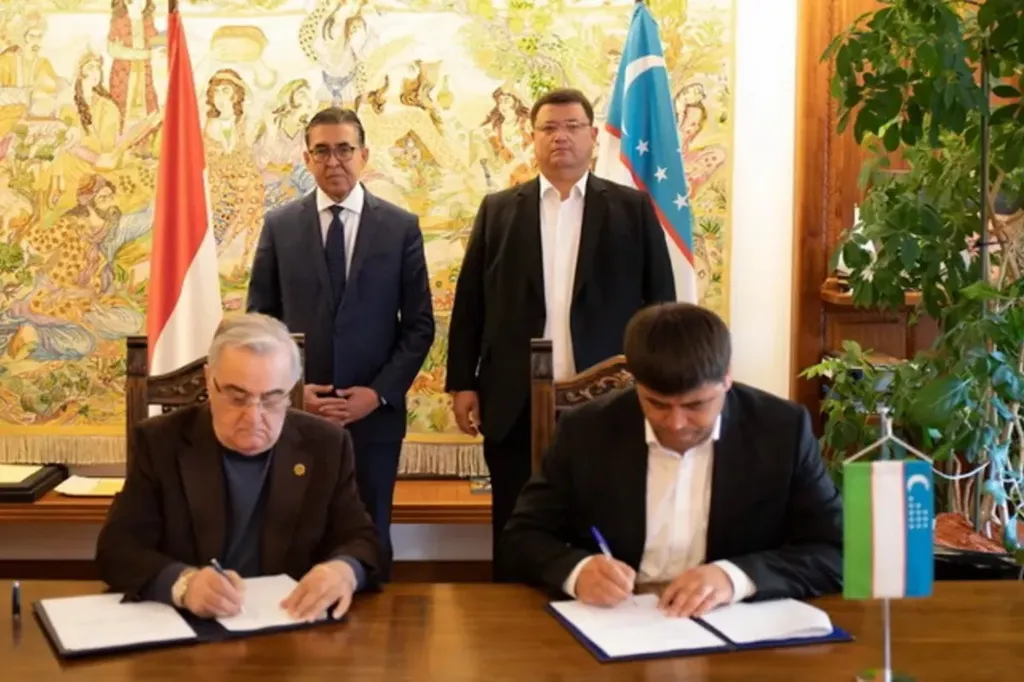In a significant move to bolster agricultural advancements, Uzbekistan and Austria have strengthened their ties through a series of high-level discussions and a landmark agreement. The recent meeting between Uzbekistan’s Deputy Minister of Agriculture Alisher Shukurov and Austria’s Deputy Minister of Finance Andreas Reichhardt, leading a delegation, underscored the mutual interest in enhancing cooperation within the agricultural sector.
The talks, held in Tashkent, delved into various aspects of agricultural development, with a strong focus on the adoption of innovative technologies. Both parties recognized the potential of modern agrotechnologies, digital farming, water-saving solutions, and climate-resilient production methods to transform the agricultural landscape. These technologies are crucial for Uzbekistan, a country where agriculture plays a pivotal role in the economy and employs a significant portion of the workforce.
The discussions also extended to the development of horticulture and vegetable farming, areas where Austria has made notable strides. By increasing processing capacities and improving quality standards, Uzbekistan aims to enhance its agricultural value chain, making it more competitive in both domestic and international markets. The exchange of expertise in these areas is expected to bring about tangible benefits for Uzbek farmers and agribusinesses.
A key outcome of the talks was the signing of a five-year Memorandum of Cooperation between Uzbekistan’s Ministry of Agriculture and the Austrian Agricultural Cluster (AAC). This agreement signifies a new phase in the strategic partnership between the two countries, paving the way for the introduction of advanced Austrian agricultural technologies and practices into Uzbekistan. The collaboration is anticipated to foster innovation, improve productivity, and promote sustainable agricultural practices.
The implications of this strengthened cooperation are far-reaching. For Uzbekistan, the partnership offers an opportunity to modernize its agricultural sector, address pressing challenges such as water scarcity, and enhance the resilience of its farming practices to climate change. For Austria, the collaboration provides a platform to share its expertise and technologies, potentially opening up new markets and business opportunities.
As both countries embark on this new chapter of cooperation, the focus will be on translating the agreed-upon initiatives into concrete actions. The success of this partnership will not only benefit the agricultural sectors of Uzbekistan and Austria but also contribute to broader economic growth and food security in the region.

